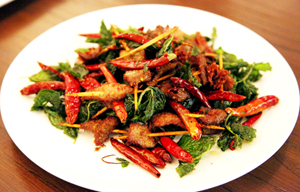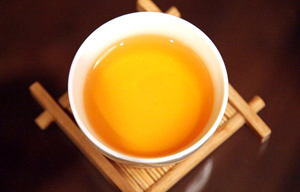Grape escapes are a learning experience
Updated: 2013-02-27 09:05
By Johnny Chan (China Daily)
|
|||||||||||
Tipple talk | Johnny Chan
Editor's note: Travel Channel host Johnny Chan's program reaches millions across China, but his real passions are wine, food, and wine with food. Here in a new column for China Daily, he writes about wine and wine culture around the country.
Wine, through history, has been playing an important role in different cultures. As China moves into the new millennium with rapid economic development, wine is fast becoming part of the everyday life, and the ability to understand and appreciate wine is very much in demand.
At the same time, wine production in China has also surged at an unprecedented pace with cabernet sauvignon and chardonnay being the most-planted varieties. China is now the fifth-largest wine producing country in the world.
In 1993, our International Wine Academy together with the Hong Kong Wine Club organized the first major wine educational tours in both Hong Kong and the Chinese mainland.
Through the years we have been working with wine institutes, vintners and dedicated professionals from different countries in wine-education programs around China.
It has been an unforgettable experience 'walking' with Jean-Michel Cazes from Chateaux Lynch-Bages, Sergio Carlei from Carlei Green Vineyards, my mentor Alan Young and many others through the years in China.
Looking back and in the quest for answers to questions regarding the development of the wine culture in China I wish we could restart again. I wish we could return to 1993 or even earlier.
World wine prices, especially the fine wine markets, seem to be dominated by the buyers from China. I feel both the industry and consumers are at a crossroad at this moment as imported wines are now roaring into China.
Despite the tremendous growth in wine production, there are still many aspects that need to be standardized, such as vintage and origin of the wine in the bottles.
In international wine law terms or practice, there is much to settle, which will affect every vineyards and how the vines are being looked after.
Wine is made in the vineyard - that is the most important part in the whole matrix of making good wine. However, there are many other aspects that need to be resolved, including cost and yield versus income for the growers.
The practice of blending imported wines with local ones also needs to be addressed.
This is not limited to the lower-end wines for cost efficiency. For premium wines, blending delivers more fruits, better color, complexity and body - in general, a Bordeaux-like wine.
China is a huge country with different regions and many producers boast being situated in "the same grape growing belt as Bordeaux".
However, there are many different sub-appellations or areas that are being classified due to their different locations in the small Bordeaux area.
If we look at countries such as Spain, Italy, Portugal or any other wine-producing country, the real attraction is that unique characteristic of the wine being produced in a particular region.
Fortunately, there is now an emerging generation of Chinese wine producers who understand the essence of wine-making. Small producers scattered in different regions are starting new trends, including the first traceable wine in China, a significant feature as food and beverage safety is still a major concern in the country.
Chinese cuisine is a perfect example for the wine industry. People enjoy Chinese food not because it all tastes the same but it is so different from region to region. It is the different colors, smells, tastes and textures we sense that make different cuisines interesting.
Wine is like that, too. If we are faithful to our own terroirs, our wines will bring out these attractive subtleties. This will not only help Chinese wines join the international community but it will also help to retain the agricultural heritage of the different regions in China.
By the same token, the industry can play an important part in walking with the consumers together to develop a coherent appreciation of wine.
Like anything else that gives us pleasure, wine can be enjoyed more fully when we take the trouble to learn something about it. Our sensory systems can be trained, just as our minds or muscles can be trained. There is no mystique about this, regardless of what the wine snobs and poseurs say.
Together with all the friends who have been walking with me in the last two decades I look forward to sharing our passion, experience and fun with you.
In vino veritas.
Related Stories
Forget beer, choose right wine for spicy hot pot 2012-12-27 17:00
Making wine elixirs in the TCM spirit 2012-12-25 01:47
French wine a Chinese entree 2012-12-24 14:12
Wisdom of China's young wine sage 2012-12-21 00:50
Recipes of eggnog and mulled wine for Christmas 2012-12-19 14:19
Today's Top News
Police continue manhunt for 2nd bombing suspect
H7N9 flu transmission studied
8% growth predicted for Q2
Nuke reactor gets foreign contract
First couple on Time's list of most influential
'Green' awareness levels drop in Beijing
Palace Museum spruces up
Trading channels 'need to broaden'
Hot Topics
Lunar probe , China growth forecasts, Emission rules get tougher, China seen through 'colored lens', International board,
Editor's Picks

|

|

|

|

|

|







